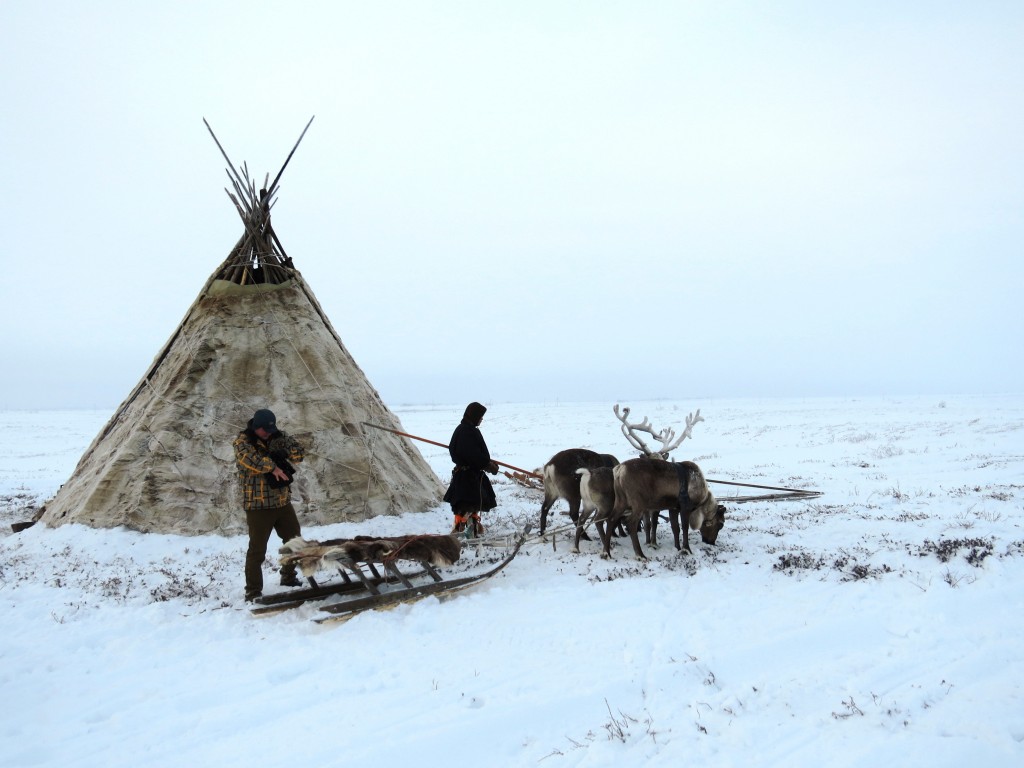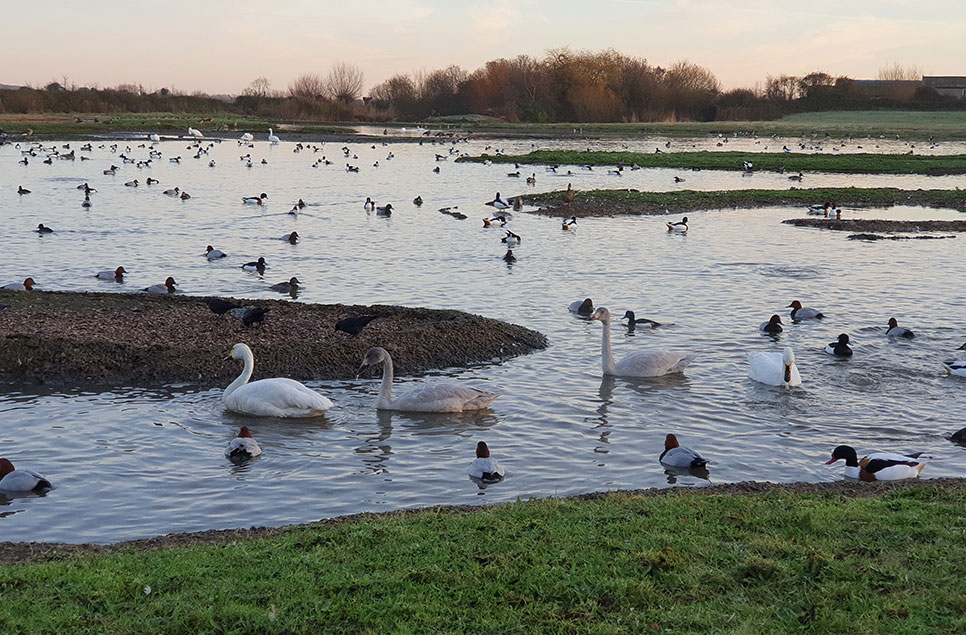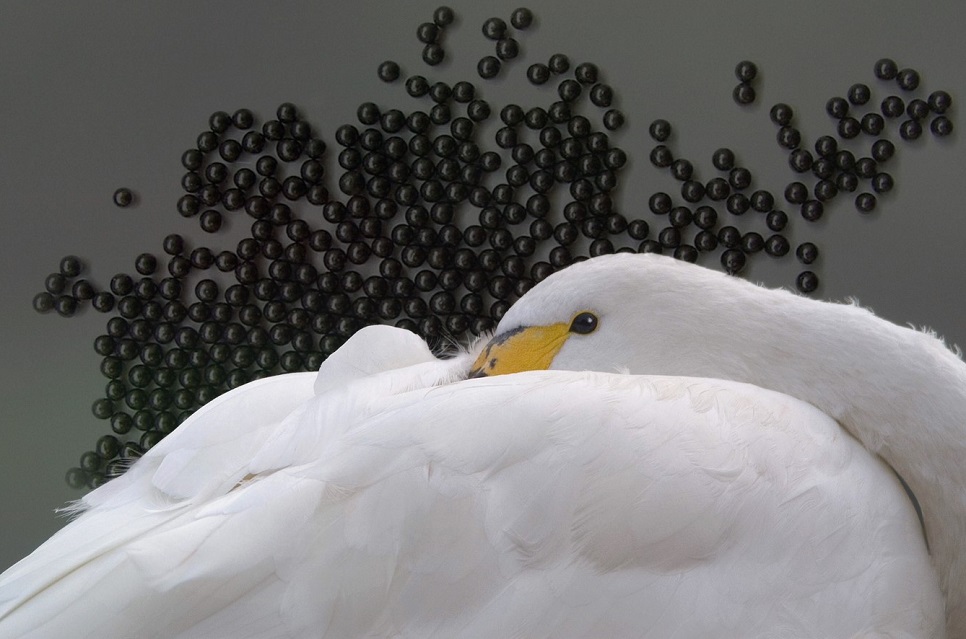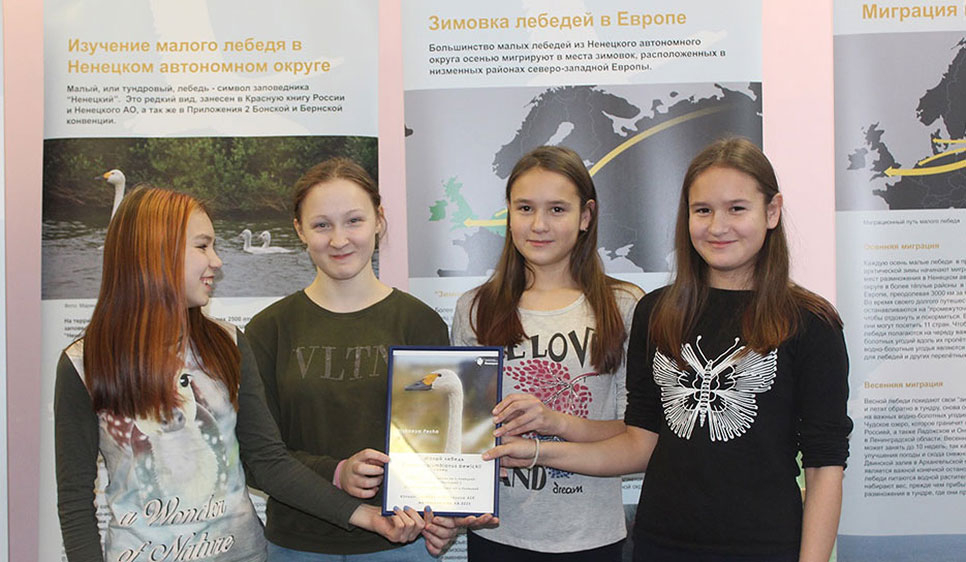Please note: water will be off in Welly Boot Land today (2 May), the play area will be open as usual. The Canoe Safari is also closed due to weather.
Close alertA little note from the Russian arctic
The Bewick’s swans have been steadily arriving at UK wintering sites with 1,009 now enjoying the Ouse Washes in Norfolk and up to 87 attending the daily swan feeds at Slimbridge.
The swans are currently travelling from Russia to Europe in efforts to escape the harsh arctic winter, some 2,500 miles away. The Russian tundra is positioned in the high north and in the summer time hosts millions of breeding waterbirds including three populations of Bewick’s swan. WWT’s Dr Eileen Rees and I were fortunate to experience this unique environment ourselves last week as we ventured up to Salekhard, a small town lying on the arctic circle.
It soon became clear why the swans had left some weeks earlier. We encountered temperatures of -16ºC although we were told by the locals that this was unusually ‘warm’ and we were ‘lucky’ that it wasn’t the normal -30 ºC! The tundra was a white blanket with several feet of snow and ice covering grasses, berries and other plants utilized by the swans during the summer months. Only the reindeer were able to scrape away the snow with their hooves to nibble on the lichen underneath. For this reason, many local people survive on the tundra during the winter by nomadically herding their reindeer from place to place. It was a privilege to meet some of the local people and gain a deeper understanding of how they interact and co-exist with the arctic environment.
The 'Waterfowl of Northern Eurasia' conference we attended in Salekhard shone a torch on the many threats facing this fragile ecosystem. Local communities in the arctic are now very much feeling the brunt of climatic changes and it seemed timely that our trip coincided with COP21, key climate talks in Paris which set out to tackle these very issues. Destruction of habitat and illegal poaching were highlighted as serious threats to numerous species of waterbird and steps to resolve these were deliberated and discussed. These issues are particularly relevant for the Endangered Northwest European population of Bewick’s swan whose numbers have halved since the mid-1990s.
WWT and Dutch colleagues from the Netherlands Institute of Ecology are working to unravel the key causes of this decline. We are also working hard to reduce the illegal shooting of swans and other waterbirds with the help and valuable knowledge of communities from the Russian arctic.



